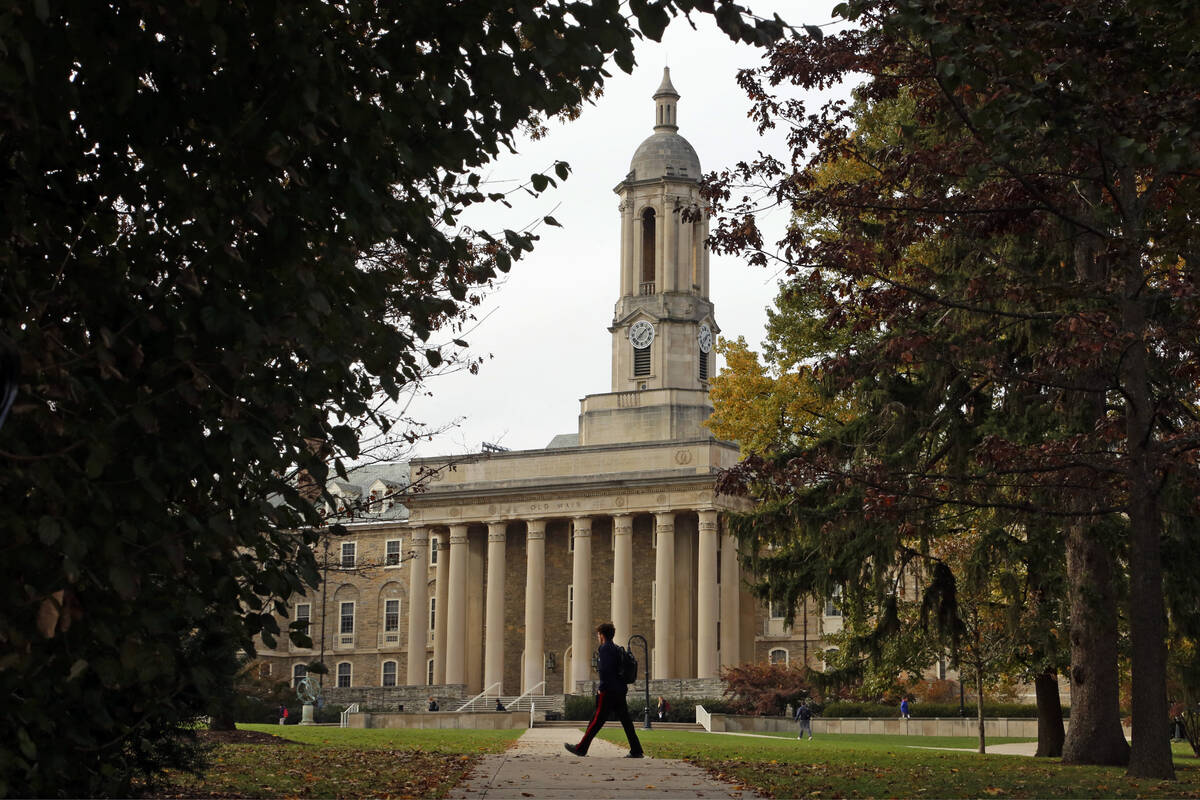VICTOR DAVIS HANSON: Can the current universities be saved?
Elite higher education in America — long unquestioned as globally pre-eminent — is facing a perfect storm.
Fewer applicants, higher costs, impoverished students, collapsing standards and increasingly politicized and mediocre faculty reflect a collapse of the university system.
The country is waking up to the reality that a bachelor’s degree no longer equates with graduates being broadly educated and analytical. Just as often, they are stereotyped as pampered, largely ignorant and gratuitously opinionated.
No wonder polls show a drastic loss of public respect for higher education and, specifically, a growing lack of confidence in the professoriate.
Each year, there are far fewer students entering college. Despite a U.S. population 40 million larger than 20 years ago, fertility rates have fallen in two decades by some 500,000 births per year.
Meanwhile, from 1980 to 2020, room, board and tuition increased by 170 percent.
Skyrocketing costs cannot be explained by inflation alone, given that campuses have lightened faculty teaching loads while expanding administrative staff. At Stanford, there is nearly one staffer or administrative position for every student on campus.
At the same time, to vie for a shrinking number of students, colleges began offering costly in loco parentis counseling, Club Med-style dorms and accommodations, and extracurricular activities.
As applicants grew scarcer and expenses went up, universities began offering “full-service” student aid packages, heavily reliant on government-subsidized student loans. The collective indebtedness of more than 40 million student borrowers is nearing $2 trillion.
Worse still, an entire new array of therapeutic majors and minors appeared in the social sciences. Most of these gender/race/environmental courses did not emphasize analytical, mathematical or oral and written skills. Such coursework did not impress employers.
Faculty hiring had become increasingly non-meritocratic based on diversity/equity/inclusion criteria. New faculty hires have sought to institutionalize self-serving DEI and recalibrate higher education to prepare a new generation for self-perpetuating radical ideologies.
At the more elite campuses, racial quotas vastly curtailed the number of Asian and white students. But that racialist social engineering project required dropping the SAT requirement and comparative ranking of high school grade point averages.
As less well-prepared students entered college, faculty either inflated grades (80 percent are A/A- now at Yale), watered down their course requirements or added new soft-ball classes. To do otherwise while attempting to retain old standards earned targeted faculty charges of racism and worse.
Another way to square the circle of rising costs and fewer and poorer students was to attract foreign students. They pay the full costs of college, especially those on generous stipends from the Middle East and China. Nearly a million foreign nationals, the majority from illiberal regimes, are now here on full scholarships.
While here, many see their newfound freedoms as invitations to attack America. Once here, they too often romanticize the very autocratic governments and illiberal values of their homelands that they seemingly sought to escape by coming to America.
Most foreign students assume they are exempt from the consequences of violating campus rules or laws in general. After all, they pay the full cost of their education and thus partially subsidize those who do not.
Almost half of all those enrolled in college never graduate. Those who do, on average, require six years to do so.
All these realities explain why teenagers increasingly opt for trade schools, vocational education and community colleges. They prefer to enter the work force largely debt-free and in demand as skilled, sought-after tradespeople.
Most feel that if the old general education curriculum has been destroyed at weaponized universities, then there is no great loss in skipping the traditional BA degree. A far better selection of demanding and well-taught classes can be found online at a lower cost.
The result is a disaster for both higher education and a wake-up call for the country at large.
Entire generations are now suffering from prolonged adolescence as they drag out college to consume their early and mid-twenties. The unfortunate result for the country is a radical delay in marriage, childbearing and home ownership — all the time-honored catalysts for adulthood and the responsibilities that come with it.
Politicized faculty, infantilized students and mediocre classes have combined to erode the prestige of college degrees, even at once elite colleges. A degree from Columbia no longer guarantees either maturity or pre-eminent knowledge but is just as likely a warning to employers of a noisy, poorly educated graduate more eager to complain to human resources than to enhance a company’s productivity.
Yet it may not be all that unfortunate that much of higher education is going the way of malls, movie theaters and CDs. The country needs far more skilled physical labor and less prolonged adolescence and debt.
STEM courses, professional schools and traditional campuses are better insulated from mediocrity and should survive. Otherwise, millions more starting adulthood at 18 debt-free and fewer encumbered, ignorant and entitled at 25 is not a bad thing for the country.
Victor Davis Hanson is a distinguished fellow of the Center for American Greatness and a classicist and historian at Stanford’s Hoover Institution. Contact him at authorvdh@gmail.com.






















